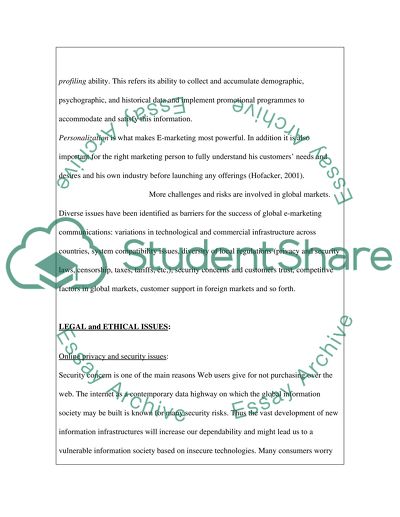Cite this document
(“E-marketing affect consumer behavior Essay Example | Topics and Well Written Essays - 1750 words”, n.d.)
E-marketing affect consumer behavior Essay Example | Topics and Well Written Essays - 1750 words. Retrieved from https://studentshare.org/marketing/1520518-e-marketing-affect-consumer-behavior
E-marketing affect consumer behavior Essay Example | Topics and Well Written Essays - 1750 words. Retrieved from https://studentshare.org/marketing/1520518-e-marketing-affect-consumer-behavior
(E-Marketing Affect Consumer Behavior Essay Example | Topics and Well Written Essays - 1750 Words)
E-Marketing Affect Consumer Behavior Essay Example | Topics and Well Written Essays - 1750 Words. https://studentshare.org/marketing/1520518-e-marketing-affect-consumer-behavior.
E-Marketing Affect Consumer Behavior Essay Example | Topics and Well Written Essays - 1750 Words. https://studentshare.org/marketing/1520518-e-marketing-affect-consumer-behavior.
“E-Marketing Affect Consumer Behavior Essay Example | Topics and Well Written Essays - 1750 Words”, n.d. https://studentshare.org/marketing/1520518-e-marketing-affect-consumer-behavior.


